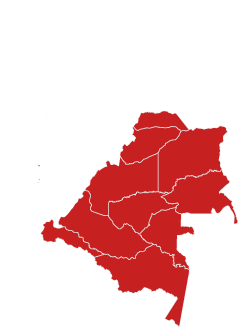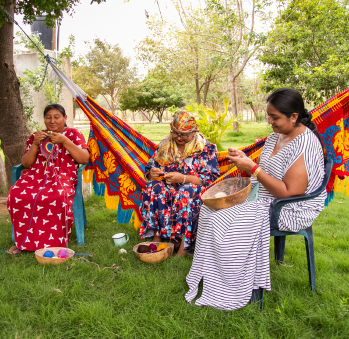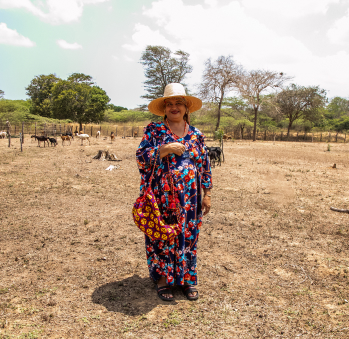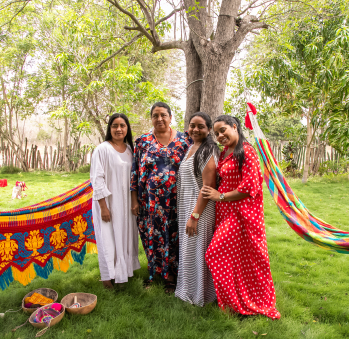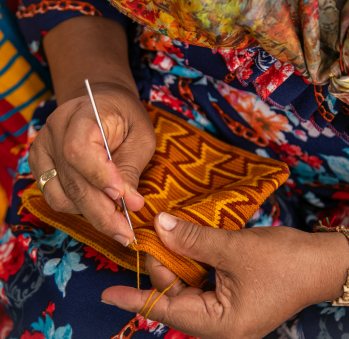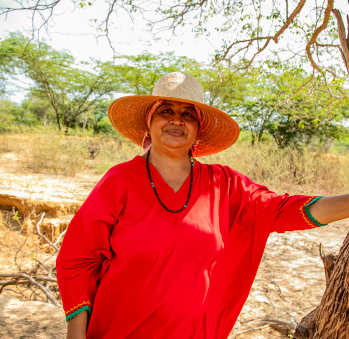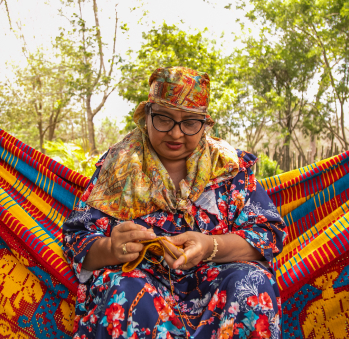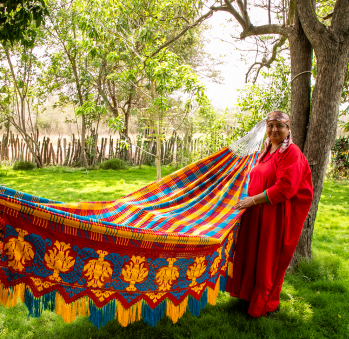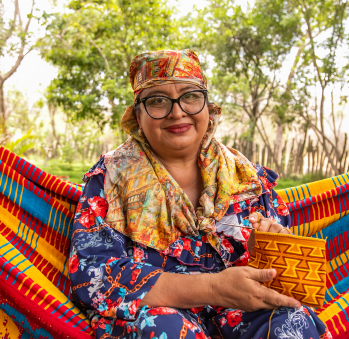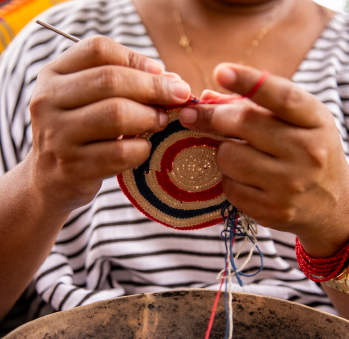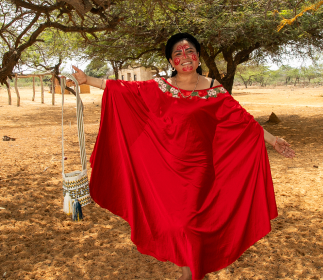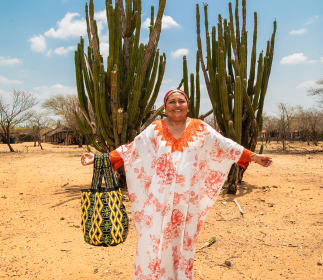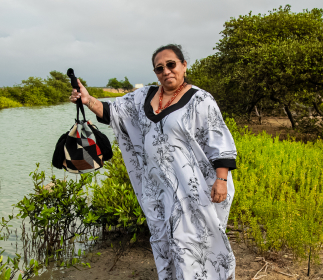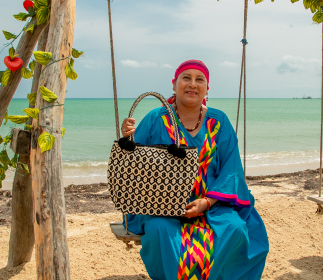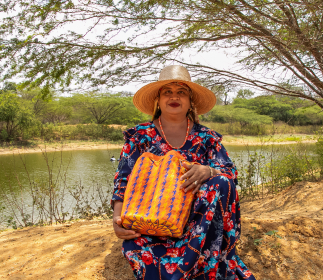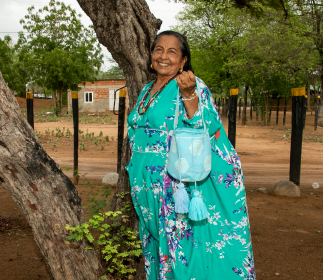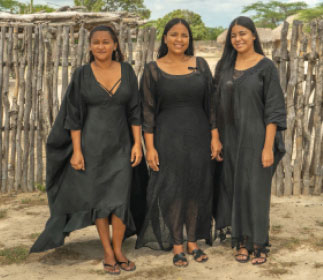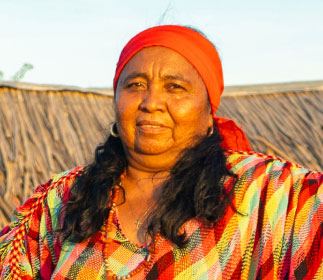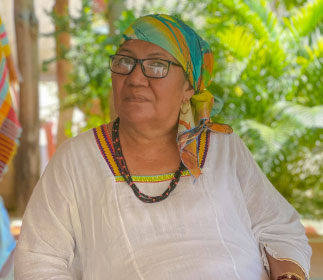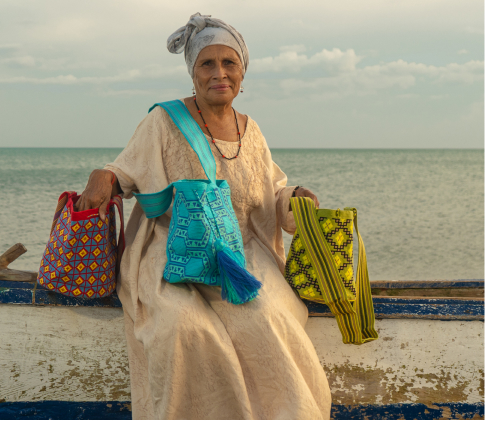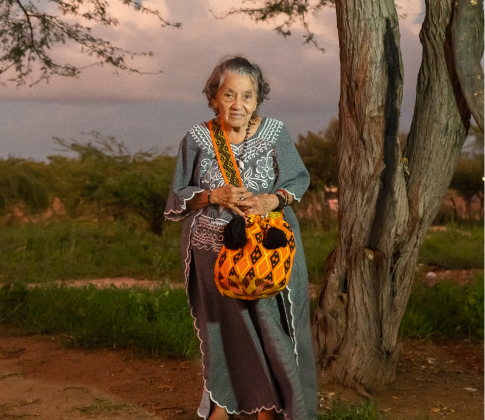Fanny Iguarán
Workshop: Fanny Igurán
Craft: Weaving
Trail: Riohacha - Nazareth Route
Location: Riohacha, La Guajira
Fanny was the chosen one to carry on her family’s legacy. How could she not be, being the eldest daughter of Lucía Inciarte, a teacher among teachers, the name that made the town of Seura, in the middle of Guajira, famous. Being her daughter was not easy, and the harshness she experienced in her childhood she could only appreciate years later, when it was no longer worth looking back with resentment, but to cherish the bright future that Teacher Lucía planted in her hands. Anyways, remembering makes her sigh, because it brings back the mixed feelings of marveling at her mother’s skill and that of her entire lineage in weaving, while also recalling the tears that often welled up in her eyes as a child from not being able to rest, from the pain in her arms and the blisters on her hands. Still, she doesn’t regret anything she lived through, because, as they told her, “that’s life, which is wise and will take you very far, so you have to learn well.”
And she learned well. But oh, did it cost her. Because on that day at the age of 14 when she thought she could trick her mom, she paid dearly for it. Doña Lucía had told her she would have to go out on an errand. She had seen her daughter’s potential to lead the charge at the loom, she had seen her do it swiftly and with great agility. So she left her in charge of the day’s work. What Fanny never imagined was that her mother would come back. And what a surprise it was when she didn’t find her in the workshop, but in the kitchen, as she had stepped away for a moment to prepare food. Fearless. “I gave birth to you, and I didn’t give birth to you to be in the kitchen!” she shouted. And she threatened her, saying that if she ever saw her there again, she would burn her hands, so she would always remember not to disobey orders.
That’s how things were in the Iguarán household, strict, because you had to learn well. Fanny recounts all this not with the intention of alarming anyone, far from considering that’s how children should be taught, and she has done things differently, but that doesn’t make her admire her mom any less. On the contrary, she narrates her as a woman who was able to withstand everything and, by contrast, become the best artisan in the region. One who was invited to Paris by UNESCO and to Washington, to bring Wayuu art to new stages.
Furthermore, she carries a legacy of mixtures, of a Dutch great-grandfather and also Venezuelan blood, of merchants and chiefs. Of colors in the skin that reveal the multiple origins throughout the generations. Because cultural exchanges continued. So her story is filled with pride. Because thanks to that tremendous teaching, Fanny also became a great weaver. She became an instructor at Sena and is now a competency evaluator in the field of Wayuu weaving. “You don’t realize what your parents are teaching you when they teach you, and it seems so tough…” she says, finally understanding everything. And she remembers one of those days when doña Lucía returned from so far away, with no gifts for her daughters, not because she didn’t see anything nice for them but because she didn’t know about money. Fanny then took on the task of turning art into a craft that would give women autonomy.
With that resilience inside her, she dedicated herself to forming artisan groups and finding outlets for the weavings. That’s when the orders started coming in. They tested it with 200, and they succeeded, to the point where one day, a foundation in the United States asked them to send three backpacks to participate in an auction. Three? They said to themselves, and they sent 30. What a surprise it was when the excitement over the backpacks was such that designers such as Carolina Herrera, Tommy, or Silvia Tcherassi gave a twist to the bags, turning that work into an unprecedented show. Then came the recognition, one where she was taken to the United States, sponsored by racing driver Juan Pablo Montoya and sharing the stage with Shakira and Daddy Yankee. There she saw her mother’s dream fulfilled. Her daughter had made it, she had done her task well. And today she is an example to her Guajira community. Fanny enjoys her life, tangled up in her threads.
Craft
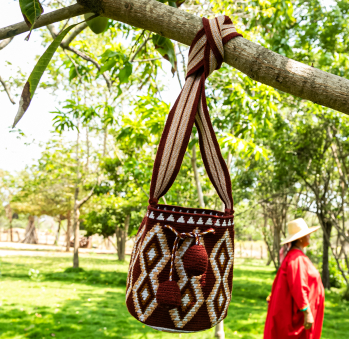
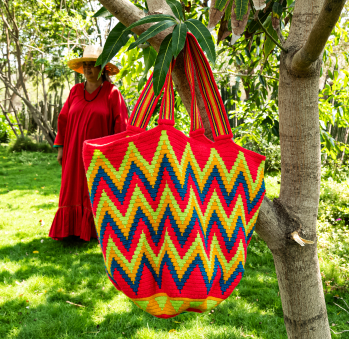
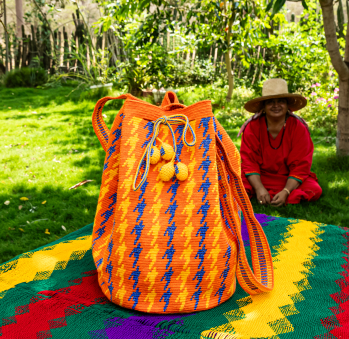
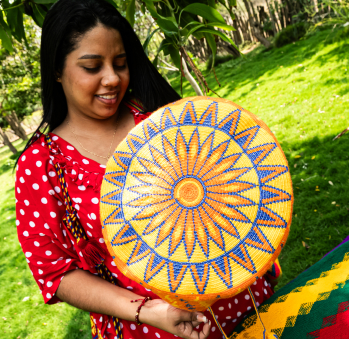
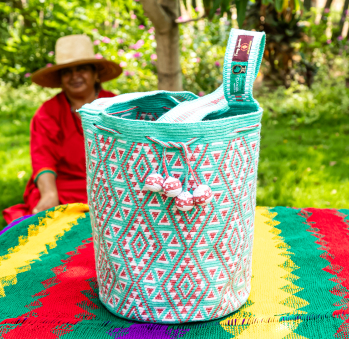
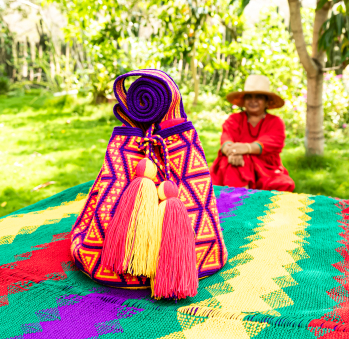
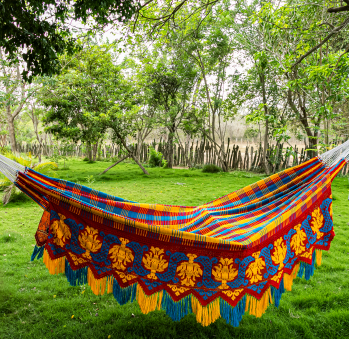
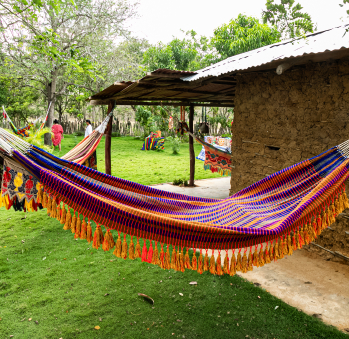
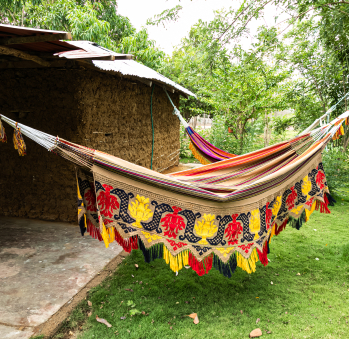
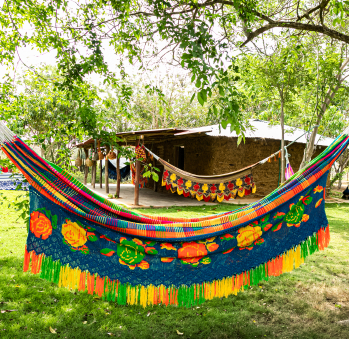










Artisans along the way
Artisans along the way
No puede copiar contenido de esta página

